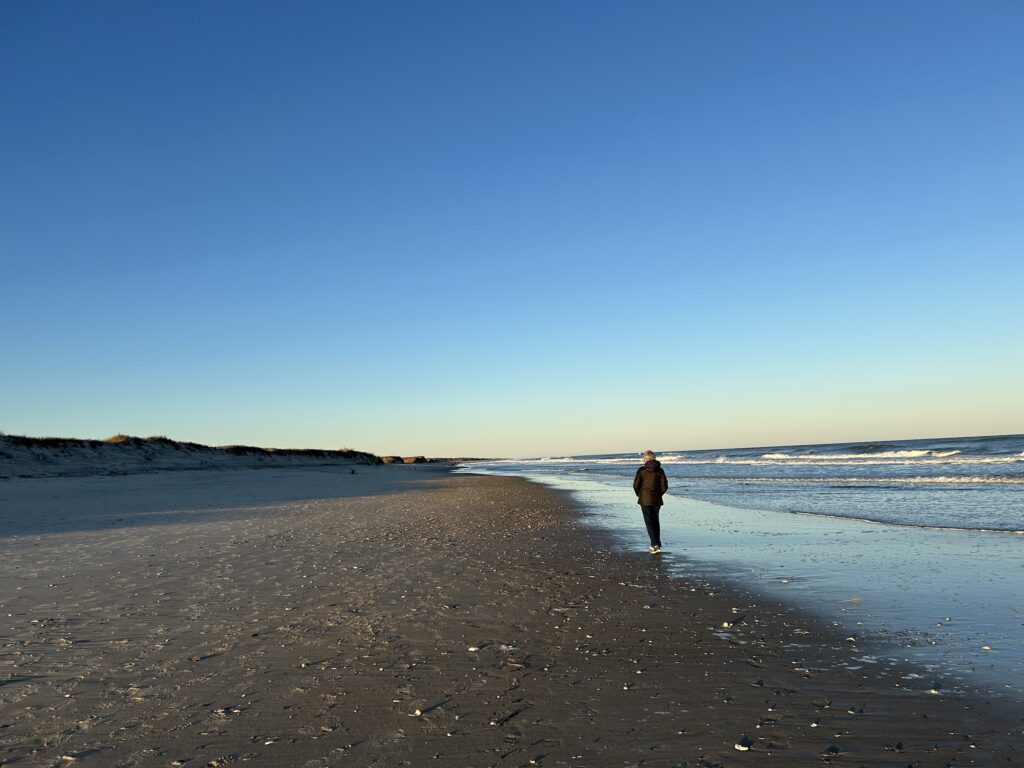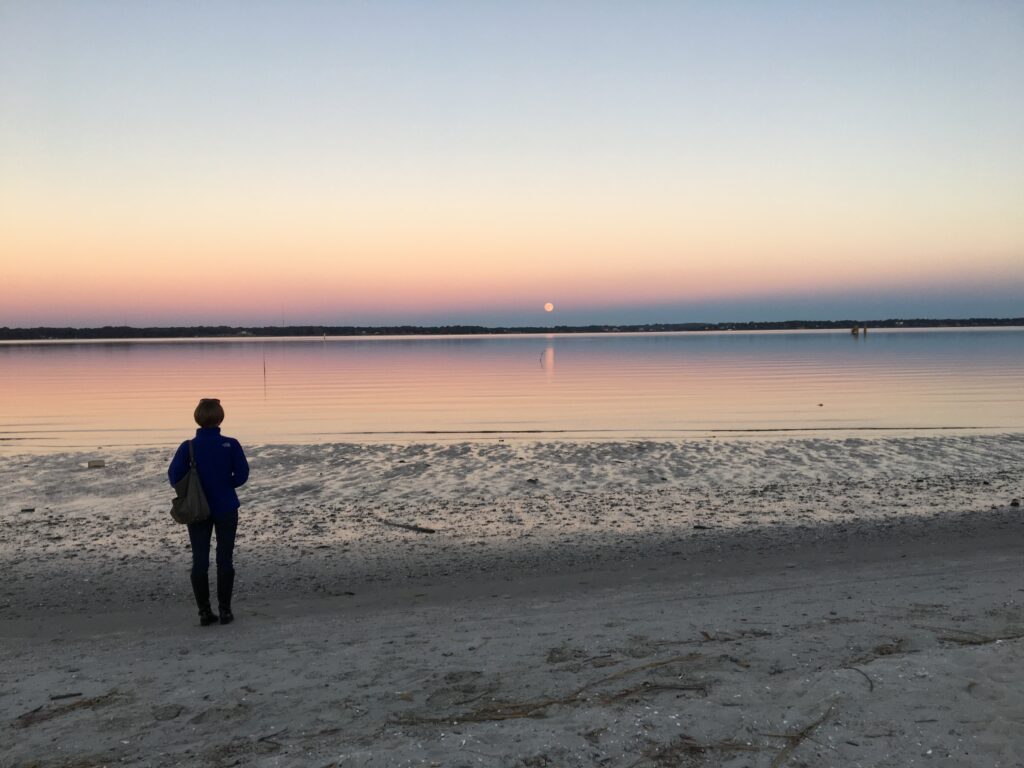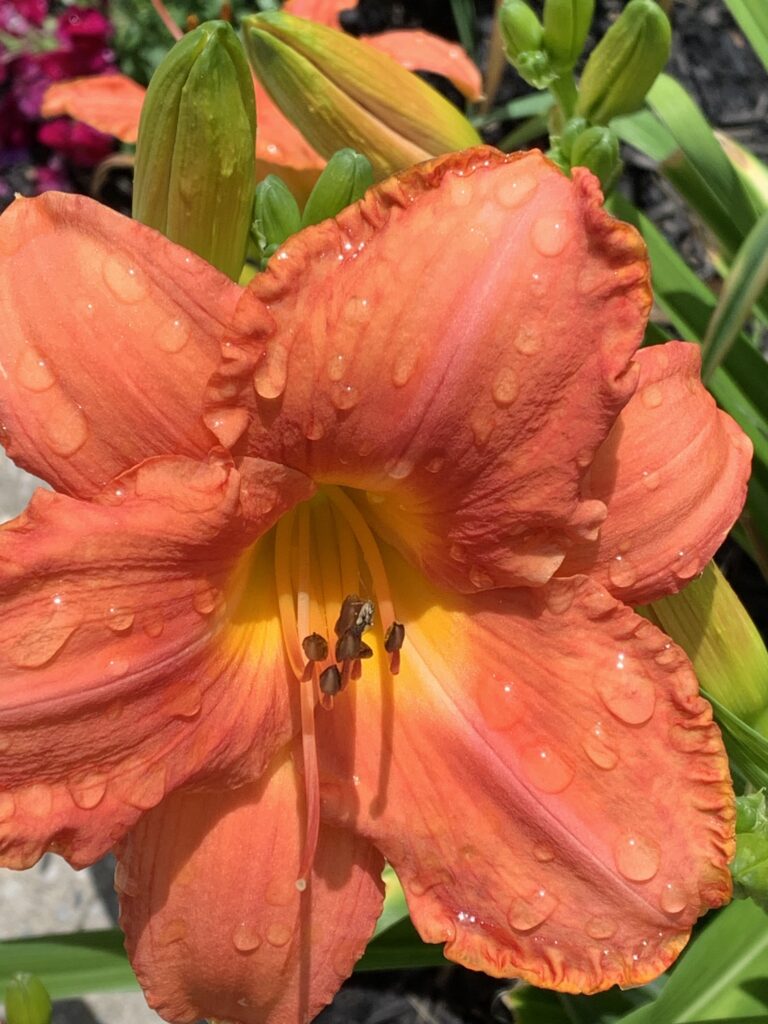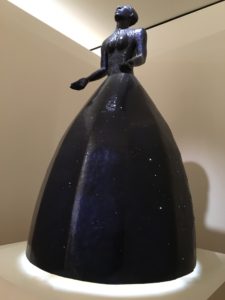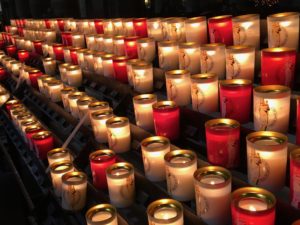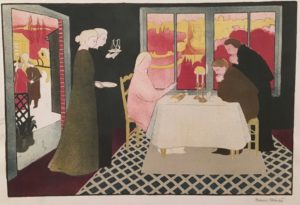Swimming, One Day in August
by Mary Oliver
It is time now, I said,
for the deepening and quieting of the spirit
among the flux of happenings.
Something had pestered me so much
I thought my heart would break.
I mean, the mechanical part.
I went down in the afternoon
to the sea
which held me, until I grew easy.
About tomorrow, who knows anything.
Except that it will be time, again,
for the deepening and quieting of the spirit.
I discovered this poem after an editor sent an image of a handmade card with a partial quote. This poem, at this time, is perfect for me
Like Mary Oliver, many things have been “pestering my heart” to the point of breaking. Most have to do with the current political scene in this country and its repercussions for democracy here and abroad, for all Americans, but especially for the poor and marginalized. I call my senators and representatives. When their voice message mailbox is full, I write emails. I donate to organizations that will help people directly or by filing lawsuits against unconstitutional or illegal actions taken by the current administration.
But the most difficult thing for me to do is just what I need and what Mary Oliver says: “… the deepening and quieting of the spirit.” Unlike Oliver, I don’t live close to the sea. But when I have a chance, a long walk along the beach calms my spirit. It’s the rhythm, the timelessness of the ebb and flow. It’s the awareness of the immensity of creation, earth and beyond, that helps me settle into a sense of being a small part of something unimaginably larger than myself and of the Holy Presence that holds all. It helps me take a long view.
But as I say, I don’t live close to the ocean, so I try to do what I can do where I am. I have varying degrees of success.
When I sit in quiet prayer, my mind fills with worry and concerns. No matter how often I acknowledge them and let them go, they return. Far from quieting my spirit, the time often agitates it. Instead, I read the New Testament and focus on Jesus’s actions and those of the women and men who followed him. Jesus didn’t “win” in our common understanding of the word, at least in the short run. The oppressors did, crucifying him and persecuting his followers. Jesus didn’t promise an easy way, but in the big picture, Love overcomes all. The prayerful reading engages my mind and heart.
I walk and pay attention to what is around me. The gift of the season. The birdsong. The sun and clouds. Stepping outside on a clear night, I take in sky. The stars and planets are breathtaking, even in the city.
I read poetry, novels, and spirituality and virtually gather with friends to share what spoke to us. Gathering is important and helps remind me that I am not alone facing these times.
This week, my daughter visited, and we went to the theater to watch A Complete Unknown about Bob Dylan. A 60’s folk singer, I loved the music and remembered the events and musicians. We came home and listened to Joan Baez while making and eating dinner. Then, at my daughter’s insistence, we pulled out my two guitars and sang the old songs. She washed dishes and I continued to play.
Doing things that feed my spirit and bring joy helped me connect with my deeper self. We baked cinnamon rolls, brioche bread, and banana muffins. We cleared the table and painted. And sat up late into the night drinking tea, talking, and watching favorite reruns.
“Centering down,” as Howard Thurman said, can happen in other ways than sitting quietly in a chair or walking the beach. I have found that when I do enough of these things, I am better able to be quietly without becoming distraught. Without living in fear of a future that is not yet. However we do it, it is time for “… for the deepening and quieting of the spirit” and living as best we can in the present.
Source
“Swimming, One Day in August”: First published in Red Bird: Poems by Mary Oliver, Beacon Press, 2008

